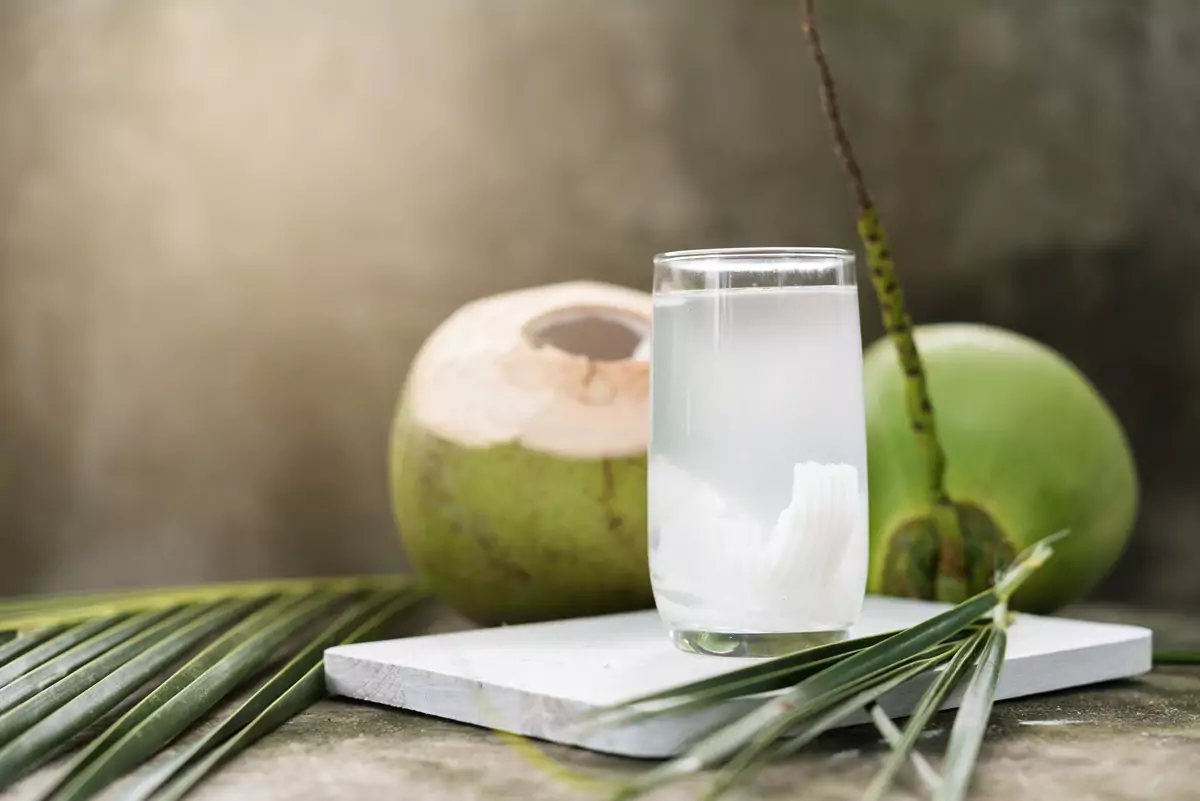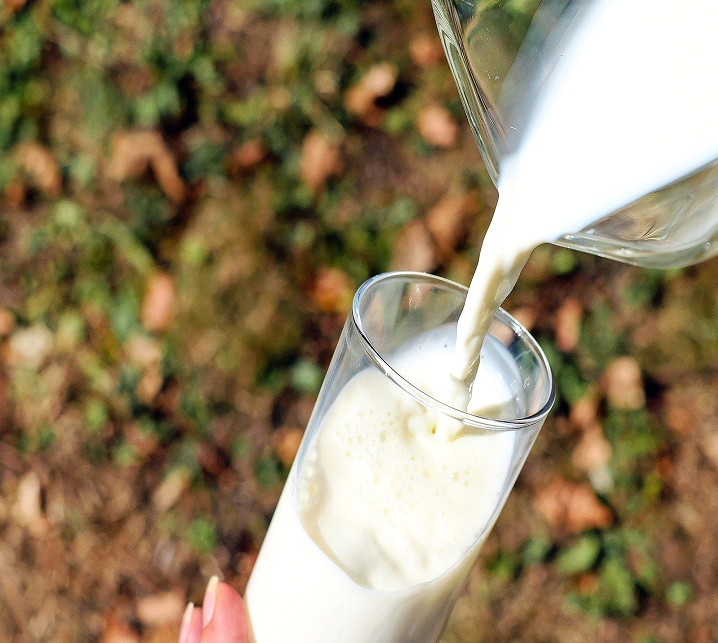
UP TO 40% OFF SITEWIDE






Does Coconut Water Good for Diabetes?


Table of Contents
- Coconut and Diabetes: A Deep Dive into the Intricacies
- Coconut in Diabetes: An Unexpected Ally?
- Is Coconut Good for Diabetes?
- Coconut Water Benefits
- Does Coconut Water Good for Diabetes?
- What’s the Difference Between Coconut Milk and Coconut Water?
- Coconut Water: The Nutritious Quencher
- Coconut Milk: Creamy and Rich
- Can We Use Coconut Milk in Place of Coconut Water?
- Is Coconut Milk Good for Diabetics?
- Coconut Water as a Preferred Option
- When to Drink Coconut Water?
- SugarMD Advanced Glucose Support: A Game Changer
- Tips to Have Coconut Water Safely in Diabetes
- 1. Moderation is Key
- 2. Opt for Fresh and Natural
- 3. Incorporate into Balanced Diet
- 4. Monitor Blood Sugar Levels
- 5. Consult Your Healthcare Provider
- Final Verdict
- FAQs
- Can coconut water cure diabetes?
- Is it safe to drink coconut water every day?
- How does SugarMD Advanced Glucose Support work?
- Can coconut oil be used by diabetics?
- What other fruits are good for diabetics?
- About The Author
Did you know that according to the International Diabetes Federation, as of 2021, approximately 537 million adults are living with diabetes worldwide? And these numbers are projected to rise to 643 million by 2030. In light of such staggering statistics the need to manage this condition effectively is more critical than ever.
That leads us to one intriguing question, "Does coconut water good for diabetes?" The quest for holistic and natural remedies to manage health conditions like diabetes is a trend that has been gaining momentum over the past few years.
Coconut water, hailed as 'Mother Nature’s sports drink', has been lauded for its myriad of health benefits. Its naturally refreshing taste coupled with its mineral-rich composition makes it a favorite among health enthusiasts.
So, how does this tropical drink fit into the diabetes narrative? Can coconut water be a part of your diabetes management plan? Is it just a hyped-up health trend or does it really have any substantial benefits for those grappling with fluctuating blood sugar levels? In this article, we will delve deeper into the relationship between coconut water and diabetes, its potential benefits, some cautionary advice and how it stacks up against alternatives like coconut milk.
Fasten your seat belts as we embark on this insightful journey to unravel the truth about coconut water and its role in diabetes management.
Coconut and Diabetes: A Deep Dive into the Intricacies
While the link between coconut and diabetes might initially seem non-existent or irrelevant, a closer look reveals a far more complex and fascinating relationship. This connection is not straightforward and is impacted by an array of factors, from individual health conditions to dietary habits.
Coconut is a fruit that has found its rightful place in a variety of culinary traditions across the globe, its enchanting tropical flavor charming palates universally. Yet the allure of the coconut extends beyond its taste. The oil, milk and water derived from it are known to offer a plethora of health benefits, boosting everything from heart health to skin vitality.
Interestingly the potential benefits of coconut consumption are not merely confined to general well-being. They extend to specific conditions too, such as diabetes which impacts millions of people worldwide. This makes it increasingly important to explore the role of coconut in the lives of those living with diabetes.
Coconut in Diabetes: An Unexpected Ally?
When it comes to diabetes management, diet plays a vital role. Here's where coconuts and more specifically coconut water, can be a potential game-changer. For a diabetic patient the glycemic index (GI) - which ranks carbohydrates based on how they affect blood glucose levels - of foods is of utmost importance. Fortunately, coconut water has a low glycemic index.
This means that it releases glucose into the bloodstream slowly, avoiding a sudden spike in blood sugar levels, a scenario that diabetic individuals strive to avoid. Furthermore, coconut water is a rich source of dietary fiber, a nutrient known to further regulate the release of glucose.
By slowing digestion, fiber ensures a steady, gradual supply of glucose thereby aiding in effective diabetes management. These factors combined, place coconut water in a promising position on the diabetic dietary chart. However, it's important to understand that coconut water should not replace medication, but rather supplement an already healthy lifestyle and a balanced diet.
Is Coconut Good for Diabetes?
The golden question that arises from this discussion is, "Is coconut good for diabetes?". The simplest way to tackle this question is by evaluating the nutritional composition of coconut, specifically coconut water and its implications on blood sugar levels. Coconuts are brimming with fiber, vitamins and minerals, making them a nutrient-dense choice.
Particularly, coconut water contains a good amount of potassium, magnesium and calcium - minerals that are essential for overall health. Notably, it also contains a type of dietary fiber known as inulin which could help in improving sensitivity to insulin and hence, better diabetes control. Moreover the fats in coconuts are primarily medium-chain triglycerides (MCTs).
MCTs are known to slow the rate of carbohydrate digestion thereby reducing the rate at which sugars are released into the bloodstream. That said, it's crucial to remember that while coconut might be beneficial, moderation is key. Overconsumption could lead to weight gain and other health issues due to its high-calorie content.
Therefore, it's recommended that you discuss your diet with a healthcare provider to ensure it's balanced and beneficial for your specific health situation. Based on the nutritional composition of coconuts they appear to be a good option for people with diabetes when consumed in appropriate amounts.
They offer an array of nutrients that could potentially assist in managing blood sugar levels and reducing the risks associated with diabetes complications. However, more scientific research is needed to fully understand the implications of coconut consumption on diabetes management.
Coconut Water Benefits
Coconut water the natural, nutrient-rich liquid extracted from the center of young, green coconuts, has long been recognized for its potential health benefits. To better understand these advantages, let's delve deeper into the nutritional composition and the science behind the famed coconut water benefits.
Coconut water's unique nutritional profile makes it a hydrating and low-calorie beverage that contains a blend of minerals, antioxidants, enzymes and vitamins. In addition to being a good source of potassium, a mineral that helps regulate heart function and maintain electrolyte balance, coconut water is also rich in magnesium, calcium and phosphorus.
This mineral-rich combination makes it an ideal, natural alternative to commercial sports drinks. Moreover, this tropical drink is lauded for its high concentration of dietary fiber and low sugar content. The American Diabetes Association recommends a high-fiber diet for individuals with diabetes, as fiber, especially soluble fiber, can slow the absorption of sugar and thus, improve blood sugar levels.
In this context, coconut water's high fiber content becomes especially noteworthy. Furthermore the naturally occurring sugar in coconut water is balanced with its bioactive enzymes, such as acid phosphatase, catalase, dehydrogenase, peroxidase and RNA-polymerases. These enzymes aid digestion and metabolism which are crucial factors when considering foods and beverages for diabetes management.
Does Coconut Water Good for Diabetes?
Given its numerous health benefits, a pertinent question that often surfaces is, "Does coconut water good for diabetes?". People living with diabetes need to maintain a careful balance in their diet. Foods and beverages that have a low glycemic index (GI) are often recommended.
The GI measures how much and how quickly a food item raises blood glucose levels. Foods with low GI values are beneficial for people with diabetes as they cause a slow, steady rise in blood glucose levels instead of a sudden spike.
Studies have indicated that coconut water has a low GI which means its sugars are absorbed into the bloodstream at a slower rate, reducing the risk of blood sugar spikes. Coconut water's high magnesium content also warrants attention in the context of diabetes.
According to a study published in the Journal of the American Heart Association, higher magnesium intake is associated with a lower risk of diabetes, possibly because of the important role of magnesium in glucose metabolism. Research is ongoing, but a study published in the Journal of Medicinal Food found that mature coconut water (a type of coconut water sourced from more mature coconuts) improved blood glucose levels, reduced oxidative stress and decreased levels of hemoglobin A1C (a measure of long-term blood glucose control) in rats with diabetes.
But what about humans? Well, anecdotal evidence and preliminary studies do hint at the potential benefits of coconut water for people with diabetes. However, more research, particularly large-scale human trials, are needed to firmly establish these benefits.
Therefore, while the question, "Does coconut water good for diabetes?" cannot be answered definitively the nutritional profile and existing research certainly suggest that coconut water can be a beneficial addition to a balanced diabetic diet, when consumed in moderation.
It's important to note that while coconut water can be a part of a healthy diet, it is not a cure or standalone treatment for diabetes. Managing diabetes effectively requires a comprehensive approach that includes a balanced diet, regular physical activity, regular blood glucose monitoring and in some cases, medication as prescribed by a healthcare provider. So, while coconut water can contribute to a healthy lifestyle, it should not replace any prescribed treatments or medications.
What’s the Difference Between Coconut Milk and Coconut Water?
While both coconut milk and coconut water share the same origin - the humble yet versatile coconut palm - their compositions, textures and uses vary significantly.
Coconut Water: The Nutritious Quencher
Coconut water is the clear, electrolyte-rich liquid found within the hollow center of a young, green coconut. It is produced naturally in the fruit and as the coconut matures, this water gradually solidifies to form the white, fleshy part known as the coconut meat. Coconut water is low in calories, has a refreshing taste and is packed with vitamins, minerals and bioactive compounds.
Typically, a cup of fresh coconut water contains approximately 45 to 60 calories, 10-12 grams of natural sugar and is an excellent source of potassium, an essential mineral known for supporting heart health. What makes it particularly appealing for individuals with diabetes is its low sugar content, high fiber and minimal fat which can contribute to maintaining stable blood sugar levels.
Coconut Milk: Creamy and Rich
On the other hand, coconut milk is a creamy, rich liquid extracted from the grated meat of a mature coconut. The process involves soaking the grated coconut flesh in hot water, allowing the cream to rise to the surface. The cream is then skimmed off and the remaining liquid is squeezed through cheesecloth to obtain the milk.
Coconut milk is higher in calories and fats compared to coconut water. A cup of coconut milk typically contains around 500 calories and 50 grams of fat, of which a significant portion is saturated fat. These characteristics make coconut milk an excellent choice for cooking and baking, adding a rich, creamy texture to dishes. However, due to its high calorie and fat content, it is usually recommended to be consumed in moderation, especially for those watching their weight or managing conditions like diabetes.
Can We Use Coconut Milk in Place of Coconut Water?
The nutritional profiles of coconut milk and coconut water are distinct enough to warrant their separate uses and purposes. While coconut milk, with its rich and creamy consistency, lends itself well to culinary applications like sauces, curries and desserts, coconut water's refreshing and light profile makes it a popular choice for hydration, especially in tropical climates. For individuals with diabetes the question of whether coconut milk can replace coconut water depends on the individual's overall diet, health goals and personal taste preferences.
Is Coconut Milk Good for Diabetics?
Coconut milk, when used judiciously, can indeed be part of a diabetic-friendly diet. However, it should be noted that due to its high fat and calorie content, portion control is crucial. The American Diabetes Association recommends limiting saturated fat intake as it can increase the risk of heart diseases, a common complication for those with diabetes.
In comparison, coconut water, with its lower calorie count, negligible fat content and natural sweetness, may be a more suitable choice for regular consumption. Its electrolyte content makes it an excellent choice for hydration and the presence of essential nutrients can contribute to overall health.

friends having fun toasting with fresh coconut water at park
Coconut Water as a Preferred Option
While both coconut water and coconut milk have their unique benefits and uses, when it comes to diabetes management, coconut water tends to edge out coconut milk due to its lower fat and calorie content and its rich nutrient profile. However, it's important to remember that managing diabetes involves a holistic approach that includes a balanced diet, regular exercise and an overall healthy lifestyle.
Therefore, including coconut water as part of a balanced diet, rather than relying on it as a standalone solution, will offer more sustainable and long-term benefits in managing diabetes. With more research and exploration the potential benefits of coconut water for diabetes and other health conditions continue to emerge, positioning this tropical beverage as an exciting area of study in the world of health and wellness.
When to Drink Coconut Water?
Navigating through the maze of managing diabetes can often feel like walking a tightrope and one question that frequently comes up is, "When is the best time to drink coconut water?" The answer, much like many aspects of this condition, isn't quite as straightforward. However there are specific times when coconut water may provide the most benefits.
Starting your day with a glass of coconut water could give a boost to your hydration levels after the long overnight fast. It's low in calories and sugars, making it a good choice to start your day right without causing a sudden spike in your blood sugar levels.
Moreover, coconut water contains potassium which helps maintain heart health, something of significant importance to those managing diabetes. Having coconut water before or after a workout could also be beneficial.
Exercise plays a critical role in diabetes management and coconut water, with its natural electrolyte content, can provide the hydration needed for a beneficial workout. It can also assist in post-workout recovery, helping to replenish the electrolytes lost during physical exertion.
Drinking coconut water before bed could potentially improve your sleep quality, thanks to its magnesium and potassium content. Both these minerals have been linked to better sleep quality and duration. Good quality sleep is vital for those with diabetes, as poor sleep can lead to higher blood sugar levels.
SugarMD Advanced Glucose Support: A Game Changer
Maintaining healthy blood sugar levels can indeed be a challenge. That's where SugarMD Advanced Glucose Support comes into the picture. Its unique blend of traditional Ayurvedic herbs help regulate blood sugar levels, curb cravings, support weight loss, boost metabolism and energy.
Tips to Have Coconut Water Safely in Diabetes
When it comes to managing diabetes, one must exercise caution and prudence. It's not different when considering the inclusion of coconut water in a diabetic diet. Here are a few tips to help you consume coconut water safely.
1. Moderation is Key
As with all aspects of a diabetic diet, moderation is key when consuming coconut water. While it's lower in sugars compared to other beverages, it does contain some carbohydrates. So, it's essential to consider these within your daily carbohydrate count.
2. Opt for Fresh and Natural
Not all coconut water is created equal. Commercially available coconut water may contain added sugars or preservatives that can spike your blood sugar levels. Always choose fresh and natural coconut water whenever possible.
3. Incorporate into Balanced Diet
Coconut water should not be considered a miracle cure for diabetes. It can be a part of your diet, but it needs to be complemented with other nutritious, low GI (glycemic index) foods.
4. Monitor Blood Sugar Levels
Monitoring your blood sugar levels is critical when introducing any new food or drink into your diabetic diet. Check your blood sugar levels before and after consuming coconut water to ensure it doesn't cause any unexpected spikes.
5. Consult Your Healthcare Provider
Finally, always consult with your healthcare provider before making significant changes to your diet. Each individual's response to foods can vary and your healthcare provider can help guide you on how to safely include coconut water in your diet based on your specific health profile.
Final Verdict
When it comes to diabetes management, coconut water has been gathering attention and praise alike. This natural beverage, fortified with a spectrum of essential nutrients, can indeed play a beneficial role for individuals navigating the challenges of this condition. However, one needs to remember that it's not a magic potion but a supplement to an overall balanced and healthy diet.
The consumption of coconut water should be harmonized with mindful eating habits. A diet that is abundant in whole grains, lean proteins, fruits, vegetables and healthy fats will not only provide the necessary nutrients but also help in the maintenance of blood sugar levels. Moderation is key; every food, when consumed in excess, can lead to potential health complications and coconut water is no exception.
Furthermore, a regular exercise regimen is pivotal. Physical activity aids in improving insulin sensitivity thereby reducing the reliance on medication for blood sugar control. It also contributes to maintaining a healthy body weight, an aspect often linked with better diabetes management. Healthy lifestyle habits, such as stress management and adequate sleep, also form the cornerstone of diabetes control. Neglecting these aspects can lead to adverse effects on blood glucose levels.
FAQs
Can coconut water cure diabetes?
It's important to understand that while coconut water can supplement diabetes management, it's not a cure. Diabetes is a chronic condition that requires ongoing management.
Is it safe to drink coconut water every day?
Yes, but in moderation. It's crucial to factor in the calorie and sugar content of coconut water into your daily dietary plan.
How does SugarMD Advanced Glucose Support work?
SugarMD Advanced Glucose Support is a unique blend of Ayurvedic herbs designed to regulate blood sugar levels, curb cravings, support weight loss, boost metabolism and provide energy.
Can coconut oil be used by diabetics?
Coconut oil can be used by diabetics, but in moderation, due to its high saturated fat content. It may help to improve cholesterol levels and offer other health benefits.
What other fruits are good for diabetics?
Fruits low on the glycemic index like berries, cherries, peaches, apricots, apples, oranges and pears can be beneficial for diabetics. Always consume fruits in their whole, unprocessed form for maximum benefits.
About The Author
Meet Dr. Ahmet Ergin a highly skilled and dedicated endocrinologist with a passion for diabetes care. Dr. Ergin earned his medical degree with honors from Marmara University in Istanbul. He completed internal medicine residency and endocrinology fellowship at Cleveland Clinic.
Dr. Ergin is board-certified in Internal Medicine, Endocrinology, Diabetes and Metabolism due to his vast medical expertise. He's a certified diabetes educator, author of "The Ultimate Diabetes Book," and founder of "the SugarMD YouTube channel."
Dr. Ergin offers exceptional diabetes care to his patients in Port Saint Lucie, FL, helping them manage effectively. Disclaimer: These statements have not been evaluated by the Food and Drug Administration. Information on this website isn’t intended to treat, cure or prevent any disease. Discuss with your doctor and do not self-treat.
Written By Dr. Ahmet Ergin
466 total articles
Meet Dr. Ahmet Ergin, a highly skilled and dedicated endocrinologist with a passion for diabetes care. Dr. Ergin earned his medical degree with honors from Marmara University in Istanbul. He completed internal medicine residency and endocrinology fellowship at Cleveland Clinic. Dr. Ergin is board-certified in Internal Medicine, Endocrinology, Diabetes, and Metabolism due to his vast medical expertise. He's a certified diabetes educator, author of “The Ultimate Diabetes Book,” and founder of “the SugarMD YouTube channel.” Dr. Ergin offers exceptional diabetes care to his patients in Port Saint Lucie, FL, helping them manage effectively. For a closer look into his insights and experiences, connect with Dr. Ahmet Ergin on LinkedIn, Instagram, and YouTube.”
Disclaimer: These statements have not been evaluated by the Food and Drug Administration. Information on this website isn't intended to treat, cure or prevent any disease. Discuss with your doctor and do not self-treat.
Products











